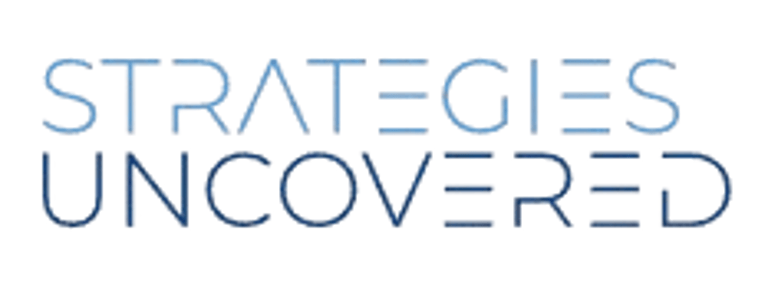The Role of Machine Learning in Marketing Automation
Marketing automation has become a cornerstone of modern marketing strategies, and machine learning (ML) is taking it to the next level. By leveraging advanced algorithms, machine learning enables automation tools to adapt, optimize, and deliver results that align closely with business goals. Here’s an in-depth look at how machine learning is revolutionizing marketing automation.
AI MARKETING


What Is Machine Learning?
Machine learning is a subset of Artificial Intelligence (AI) that uses data to identify patterns, learn from them, and make predictions or decisions without explicit programming. For instance, Netflix uses ML to recommend shows based on viewing habits, and Amazon applies it to suggest products tailored to individual preferences. In marketing, ML enables tools to continuously improve their performance, making campaigns more effective over time.
Key Applications of Machine Learning in Marketing Automation
1. Predictive Lead Scoring
Machine learning analyzes historical data to identify which leads are most likely to convert. By scoring leads based on behaviors, demographics, and interactions, ML helps sales teams focus on high-potential prospects.
Why It Matters:
Improves Sales Efficiency: Saves time by prioritizing the right leads.
Increases Conversion Rates: Focuses efforts on quality prospects for better results.
Example in Action:
Salesforce uses predictive scoring to rank leads, enabling sales teams to focus on top-tier opportunities and shorten the sales cycle.
2. Behavior-Based Personalization
Machine learning tracks user behavior across channels and tailors content, recommendations, and offers accordingly. This creates a personalized experience that resonates with individual customers.
Why It Matters:
Enhances Engagement: Relevant interactions keep customers interested.
Boosts Loyalty: Personalized touchpoints build trust and long-term relationships.
Example in Action:
Spotify’s Discover Weekly playlist curates songs based on a user’s listening history, creating a highly engaging and personalized experience.
3. Dynamic Content Creation
ML-powered tools can generate personalized email subject lines, ad copy, and even full blog posts. By learning from past campaign data, these tools ensure content aligns with audience preferences.
Why It Matters:
Reduces Time Spent on Content Creation: Automates repetitive writing tasks.
Improves Campaign Performance: Tailored messaging drives engagement.
Example in Action:
Tools like Jasper AI help marketers draft blog posts or ads by analyzing audience data and previous successful campaigns.
4. Customer Journey Mapping
Machine learning helps map out customer journeys by analyzing data from multiple touchpoints. This allows marketers to identify pain points, optimize experiences, and guide users toward conversion.
Why It Matters:
Provides a Holistic View: Helps marketers understand the full customer experience.
Enables Proactive Improvements: Fixes pain points before they become issues.
Example in Action:
Adobe Marketo’s ML tools analyze customer journeys to identify drop-off points and suggest optimizations for better conversion rates.
5. Real-Time Campaign Optimization
Machine learning continuously monitors campaign performance and makes real-time adjustments, such as shifting budgets between channels or tweaking targeting parameters.
Why It Matters:
Maximizes ROI: Adapts to changing conditions for optimal results.
Reduces Manual Intervention: Automates adjustments, saving time.
Example in Action:
Google Ads’ Performance Max uses ML to allocate budgets and optimize bids across multiple ad formats and channels.
Benefits of Using Machine Learning in Marketing Automation
1. Efficiency
ML automates repetitive tasks, freeing up time for strategy and creativity. For example, automating email sequences saves hours of manual work each week.
2. Accuracy
Delivers precise targeting and predictions based on data, ensuring your campaigns hit the right audience every time.
3. Scalability
Handles large volumes of data effortlessly, making it suitable for businesses of all sizes, from startups to enterprises.
4. Continuous Improvement
Learns from data to refine strategies over time, ensuring campaigns get smarter and more effective.
How to Get Started with Machine Learning in Marketing Automation
1. Identify Key Areas
Focus on pain points where automation could deliver the most impact, such as lead nurturing or ad optimization.
2. Choose the Right Tools
Platforms like Salesforce, HubSpot, and Adobe Marketo offer ML capabilities tailored for marketing. For instance, HubSpot’s predictive lead scoring helps prioritize sales efforts effectively.
3. Integrate Data Sources
Ensure all relevant data is centralized and accessible for machine learning tools to analyze. Using a CRM to consolidate data is a good starting point.
4. Test and Optimize
Begin with pilot projects to test the effectiveness of ML tools. For example, try dynamic email personalization on a small segment before rolling it out widely.


The Future of Machine Learning in Marketing Automation
As technology evolves, machine learning will continue to drive innovation in marketing automation. Emerging trends include:
Voice and Image Recognition: Using voice search or analyzing visual content to enhance personalization and engagement.
Hyper-Automation: Combining ML with AI to fully automate complex workflows, such as multi-channel campaign management.
Predictive Analytics at Scale: Delivering highly detailed insights into customer behavior, enabling more granular targeting and forecasting.
Conclusion
Machine learning is reshaping marketing automation, enabling businesses to create smarter, more effective campaigns. By adopting ML-driven tools and strategies, marketers can stay ahead of the competition, maximize ROI, and deliver exceptional customer experiences.
Ready to revolutionize your marketing?
At Strategies Uncovered, we specialize in integrating machine learning into marketing automation.
